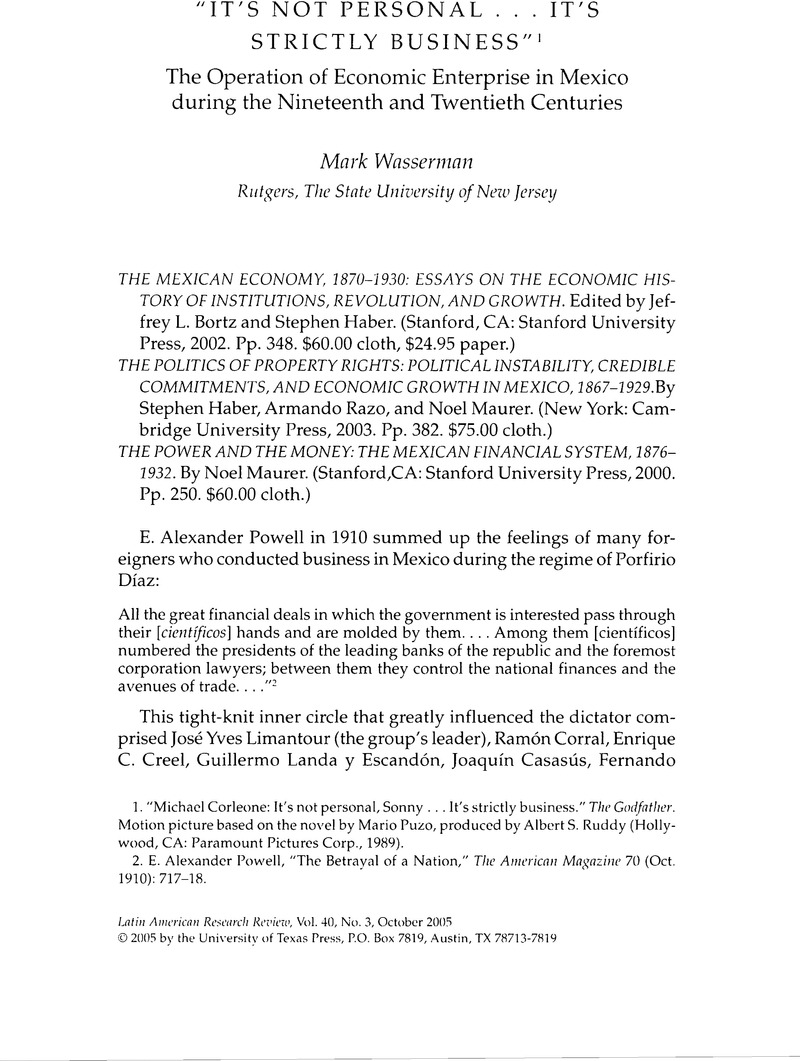Published online by Cambridge University Press: 05 October 2022

1. “Michael Corleone: It's not personal, Sonny … It's strictly business.” The Godfather. Motion picture based on the novel by Mario Puzo, produced by Albert S. Ruddy (Hollywood, CA: Paramount Pictures Corp., 1989).
2. E. Alexander Powell, “The Betrayal of a Nation,” The American Magazine 70 (Oct. 1910): 717–18.
3. Ibid., 719
4. Stephen H. Haber, Industrialization and Underdevelopment: The Industrialization of Mexico, 1890–1940 (Stanford: Stanford University Press, 1987).
5. Peter Evans, Dependent Development: The Alliance of Multinational, State, and Local Capital in Brazil (Princeton: Princeton University Press, 1979). See also Mark Wasserman, “Foreign Investment in Mexico, 1876–1911: A Case Study of the Role of Regional Elites.” The Americas 36 (July 1979): 2–21.
6. Mark Wasserman, Capitalists, Caciques, and Revolution: Native Elite and Foreign Enterprise in Chihuahua, Mexico, 1876–1911 (Chapel Hill: University of North Carolina Press, 1983).
7. Article 123 of the Constitution of 1917 brought about an eight-hour day, six-day week, equal pay for equal work, profit sharing, minimum wages, the right to organize and strike, protection for workers from arbitrary firing, mandatory labor arbitration, and other reforms.
8. See page 108: “Calles…realized this, and sacrificed foreign credibility in favor of domestic credibility”; page 248: “… the government had every incentive to abrogate those concessions or raise taxes—and the mining companies knew it”; page 252: “A more plausible… .”; page 262: The Mexican government could not, however, actually enforce any of these de jure changes in property rights and the miners knew it.“ In each case there are assumptions and assertions made, but no letter or memorandum is quoted.